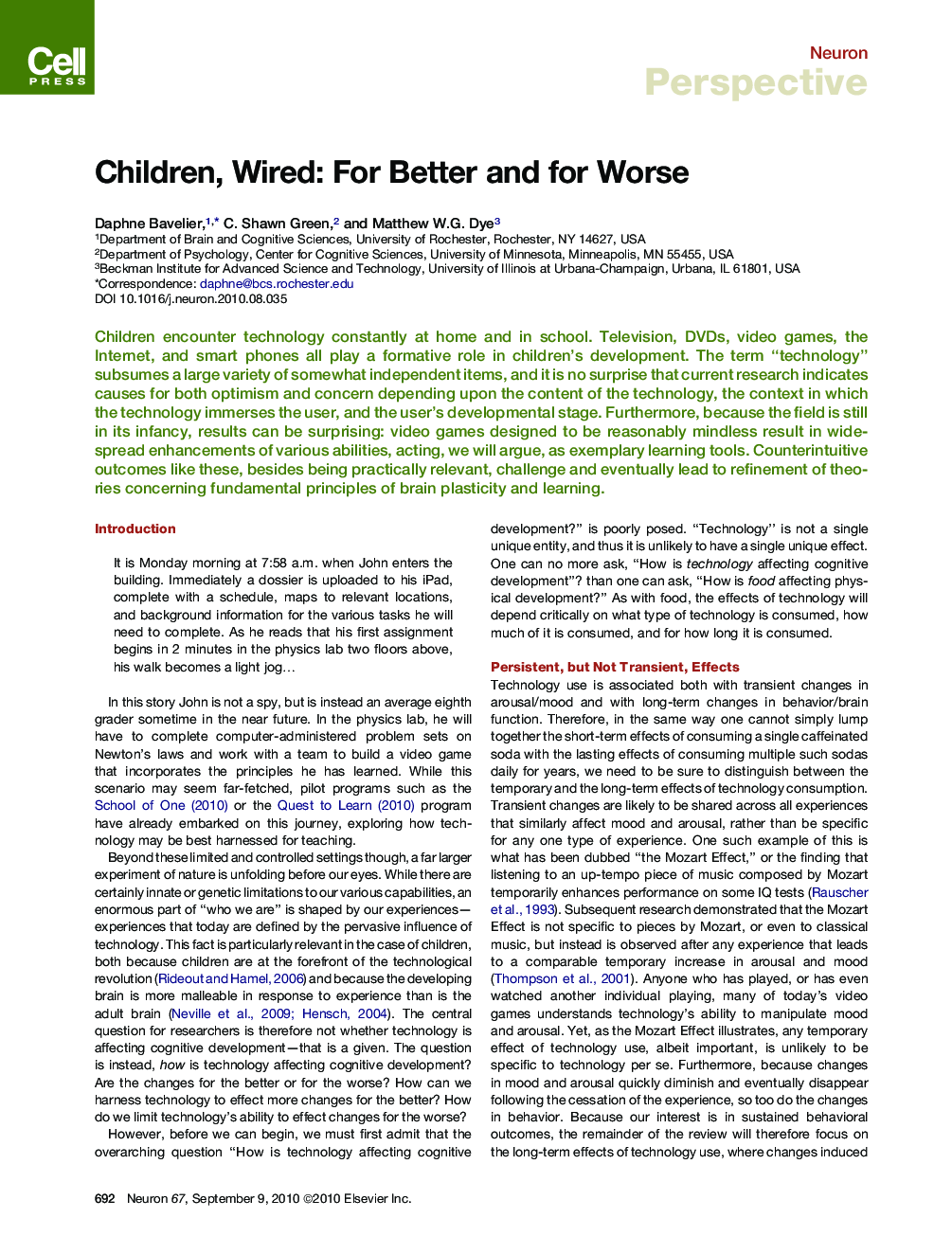| Article ID | Journal | Published Year | Pages | File Type |
|---|---|---|---|---|
| 4321910 | Neuron | 2010 | 10 Pages |
Children encounter technology constantly at home and in school. Television, DVDs, video games, the Internet, and smart phones all play a formative role in children's development. The term “technology” subsumes a large variety of somewhat independent items, and it is no surprise that current research indicates causes for both optimism and concern depending upon the content of the technology, the context in which the technology immerses the user, and the user's developmental stage. Furthermore, because the field is still in its infancy, results can be surprising: video games designed to be reasonably mindless result in widespread enhancements of various abilities, acting, we will argue, as exemplary learning tools. Counterintuitive outcomes like these, besides being practically relevant, challenge and eventually lead to refinement of theories concerning fundamental principles of brain plasticity and learning.
